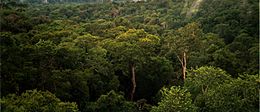|
Asia
- Malacca - Car Nicobar, India
- Balikpapan, Indonesia
- Banjarmasin, Indonesia
- Bogor, Indonesia
- Ipoh, Indonesia
- Medan, Indonesia
- Padang, Indonesia
- Palembang, Indonesia
- Pontianak, Indonesia
- Ishigaki, Japan
- Kuching, Malaysia
- Johor Bahru, Malaysia
- Kuala Lumpur, Malaysia
- Davao City, Philippines
- Polomolok, Philippines
- Tacloban, Leyte, Philippines
- Singapore
- Colombo, Sri Lanka
- Kurunegala, Sri Lanka (bordering on Am)
- Ratnapura, Sri Lanka
- Sri Jayawardenepura Kotte, Sri Lanka (bordering on Am)
- Orchid Island, Taiwan
- Nakhon Si Thammarat, Thailand
- Narathiwat, Thailand (bordering on Am)
Oceania
- Pago Pago, American Samoa
- Tubuai, Austral Islands
- Innisfail, Queensland, Australia
- Avarua, Cook Islands
- Palikir, Federated States of Micronesia
- Suva, Fiji
- Hagåtña, Guam
- Atuona, French Polynesia
- Mata Utu, French Polynesia
- Papeete, French Polynesia
- Tarawa, Kiribati
- Majuro, Marshall Islands
- Yaren, Nauru
- Alofi, Niue, New Zealand
- Koror, Palau
- Tabubil, Papua New Guinea
- Lae, Papua New Guinea
- Pitcairn Island
- Apia, Samoa
- Honiara, Solomon Islands
- Nuku’alofa, Tonga
- Funafuti, Tuvalu
- Hilo, Hawaii, United States
- Port Vila, Vanuatu
|
Africa
Americas
- Punta Gorda, Belize
- Hamilton, Bermuda (bordering on Cfa)
- Villa Tunari, Bolivia
- Belém, Brazil
- Macaé, Brazil
- Manaus, Brazil
- Salvador, Brazil
- Santos, Brazil
- Easter Island, Chile (bordering on Cfa)
- Buenaventura, Valle del Cauca, Colombia
- Florencia, Colombia
- Leticia, Colombia
- Quibdó, Colombia
- Cocos Island, Costa Rica
- Limón, Costa Rica
- Higüey, Dominican Republic (bordering on Am)
- Puyo, Ecuador
- Saint-Laurent-du-Maroni, French Guiana
- St. George's, Grenada
- Pointe-à-Pitre, Guadeloupe (bordering on Am)
- Puerto Barrios, Guatemala
- Georgetown, Guyana
- La Ceiba, Honduras
- Port Antonio, Jamaica
- Bluefields, Nicaragua
- Changuinola, Panama
- Iquitos, Peru
- Castries, Saint Lucia (bordering on Am)
- Lelydorp, Suriname
- Paramaribo, Suriname
- Scarborough, Trinidad and Tobago
- West Palm Beach, Florida, United States (bordering on Am)
- Fort Lauderdale, Florida, United States (bordering on Am)
|


